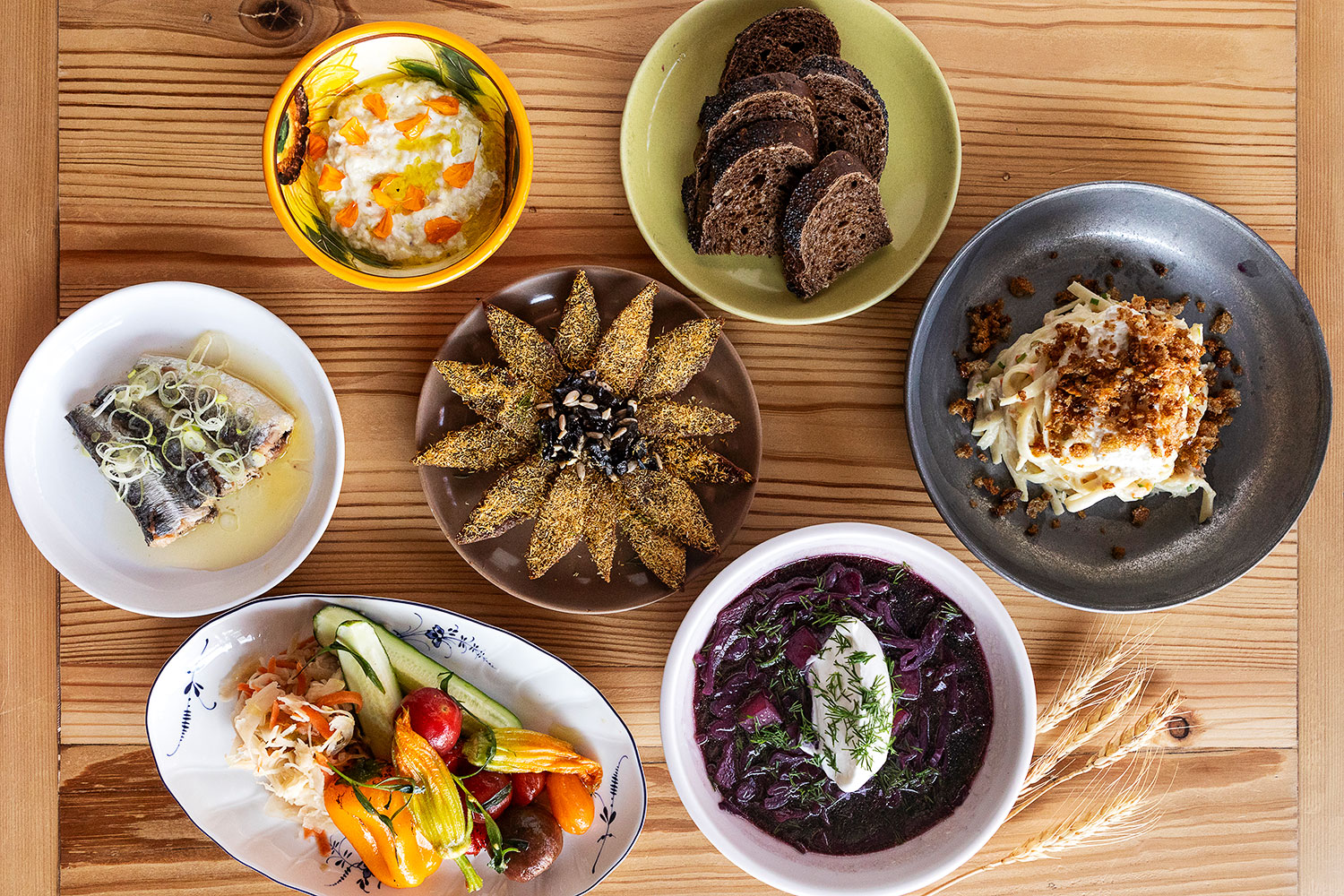Ukraine has been in the news a lot lately, for obvious (and often tragic) reasons. However, we haven’t heard a lot about Ukrainian cuisine, either inside or outside of the country. Chef Johnny Clark hopes to change that when Anelya opens (it’s currently slated to open in October).
Clark has always treasured his Ukrainian heritage, but until recently, he never thought it would be possible to do a Ukrainian-focused restaurant. “It’s something I’ve always wanted to do, but for whatever reason, I didn’t think it would ever sell,” says Clark. However, a series of unfortunate events eventually paved the way for Anelya. Clark, who with his wife, chef Beverly Kim, runs the acclaimed Parachute, also used to own a restaurant called Wherewithall. Wherewithall (which, side note, I dearly miss), shut down during the pandemic, re-opened, and then was shut down again by a massive sewer pipe collapse in May. “I can’t re-open this restaurant for the third time in four years,” lamented Clark.
The end of Wherewithall left space for a new concept, and the interior has been entirely revamped for Anelya. “I had always felt weird about re-concepting; I hate the word,” Clark says. “But once I started, it actually felt really good. It feels like maybe what it should have been all along.”
Prospective diners may ask — what exactly is Ukrainian food? And they aren’t the only ones; thanks to Soviet-era homogenization and forced cultural erasure, the specialties and nuances of many Eastern European cuisines were suppressed for decades. Clark was familiar with many Ukrainian dishes through his grandmother, who left the country after the Second World War, but when he recently visited Ukraine, he was surprised to see the depth and variety of the cuisine, as well as the focus on local ingredients. “Unless you’ve been to Kyiv in the past five years, you wouldn’t know that it has a really amazing food scene, even in the midst of a war,” explains Clark. “It’s comparable to Italian food — produce is really important, freshness is important.”
The hallmark of Ukrainian food is borscht, which despite its Russian stereotype originated in Ukraine (it’s even certified as such by UNESCO). “Borscht is the kimchi of Ukraine,” says Clark. “Everyone’s mother has a different variety, and every town has a different variety.” Don’t expect bland beet soup here; Clark’s favorite variation is made with game bird and smoked pears. “You’ve never had borscht like that.” It’ll be served alongside pampushki, a traditional Ukrainian bread that Clark compares to a Parker House roll.
An exciting, interactive part of Anelya will be the zakuski; this selection of appetizers will appear tableside on a dramatic, multi-tiered tower, and guests can select what they want from items like pickled fish and vegetables, charcuterie, and other snacks. Vareniki are the Ukrainian version of the Eastern European dumpling found in many places — think pierogi — but Clark plans to use them as a vehicle to showcase a variety of unique flavors. Though, he admits, his favorite version is the traditional potato. “It’s the most boring, but I think the most delicious,” laughs Clark.
A challenge for Anelya has been the wine list. Clark would like to have done an entirely Ukrainian wine list, but almost no Ukrainian wine is imported to the United States. However, Anelya will be one of the only spots in Chicago with a wine list focused on Eastern Europe. Get ready for your preconceived notions to be challenged, says Clark. “You’d be surprised at the variety of styles and grape varietals. It’s just as vast as western Europe.” Of course, there will also be a variety of Ukrainian vodkas, including house-made infusions inspired, in part, by vermouth and flavored with herbs and botanicals. Expect the same sort of kickin’ vintage audio system that Parachute has (Clark says he needs an excuse to showcase his massive collection) with a modern Ukrainian playlist.
Clark aims to change people’s perception of what Ukrainian food might be. “It’s not a big bowl of goulash,” he laughs. “Ukraine has a very rich, deep culture but it was forcefully removed from them. Not until independence did they start rebuilding — people had literally buried family cookbooks in the backyard. I’m learning more every day.”



